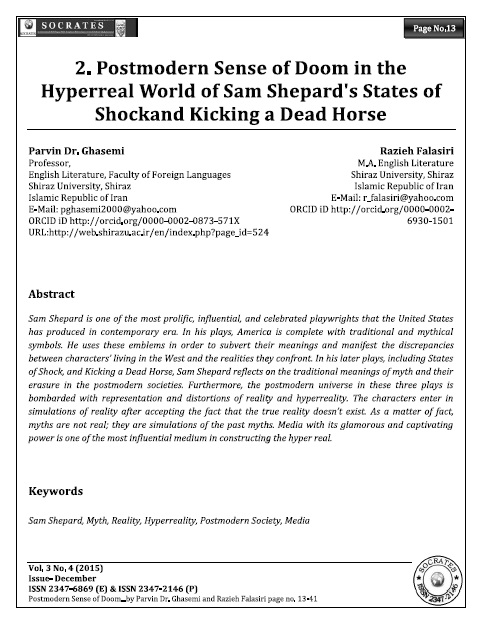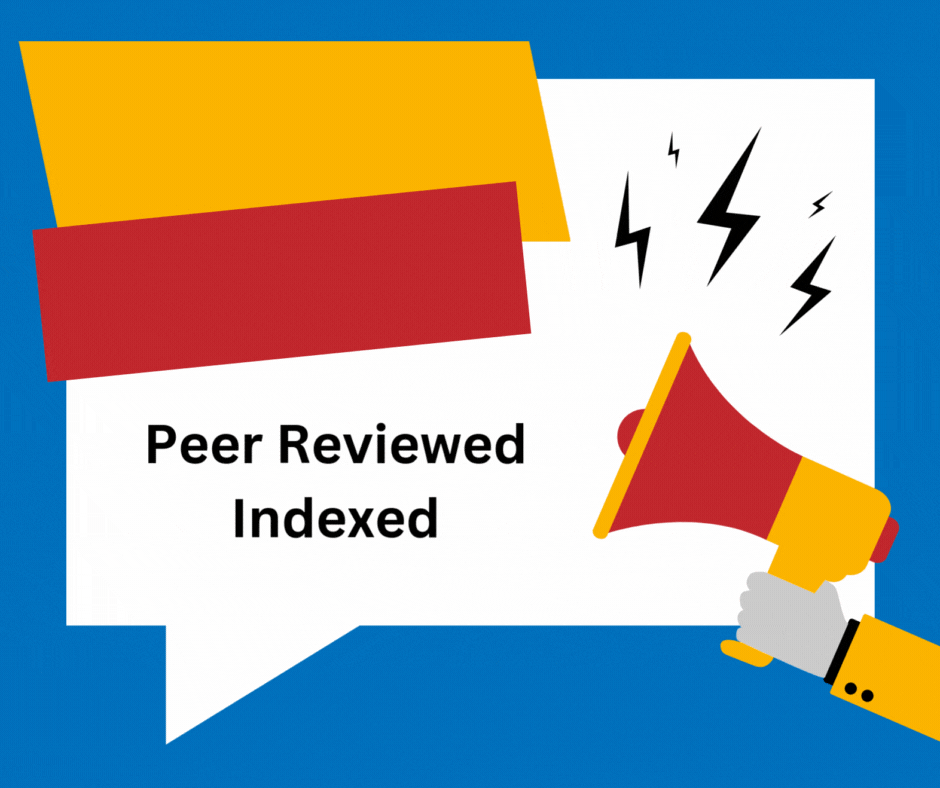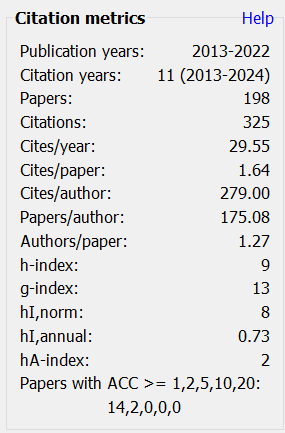Postmodern Sense of Doom in the Hyperreal World of Sam Shepard's States of Shockand Kicking a Dead Horse
Keywords:
Sam Shepard, Myth, Reality, Hyperreality, Postmodern Society, MediaAbstract
Sam Shepard is one of the most prolific, influential, and celebrated playwrights that the United States has produced in contemporary era. In his plays, America is complete with traditional and mythical symbols. He uses these emblems in order to subvert their meanings and manifest the discrepancies between characters’ living in the West and the realities they confront. In his later plays, including States of Shock, and Kicking a Dead Horse, Sam Shepard reflects on the traditional meanings of myth and their erasure in the postmodern societies. Furthermore, the postmodern universe in these three plays is bombarded with representation and distortions of reality and hyperreality. The characters enter in simulations of reality after accepting the fact that the true reality doesn’t exist. As a matter of fact, myths are not real; they are simulations of the past myths. Media with its glamorous and captivating power is one of the most influential medium in constructing the hyper real.
Downloads
Metrics
References
Barthes, R. (1966). Mythologies (Annette Lavers. Trans). USA: The Noonday Press.
Baudrillard, J. (1988). . Chris Turner, Trans.). Verso: America.
Baudrillard, J. (1994). Simulacra and Simulation (Sheila Faria Glaser. Trans.). Michigan: U of Michigan.
Baudrillard, J. (1993). Symbolic Exchange and Death (Charles. Levin, Trans.).Verso: London.
Baudrillard, J. (1988). The Consumer Society. London: Sage Publications.
Bigsby, C. (2000). Born Injured: The Theatre of Sam Shepard. In Matthew Roudané (Ed.), The Cambridge History of American Theater. Cambridge: Cambridge UP.
Bigsby, C. W. E. (2000). Modern American drama, 1945-2000. Cambridge; Cambridge University Press, 2000: Cambridge University Press.
Bottoms Stephen J, (1998). Theatre of Sam Shepard: States of Crisis. Cambridge. Cambridge, U.K. ; Cambridge University Press, 1998: Cambridge University Press.
Brod, H. (1995). Masculinity as Masquerade. In Andrew Perchuk and Helaine Posner (Eds.), The Masculine Masquerade: Masculinity and Representation. Cambridge: MIT List Visual Arts Center.
Christopher, B. (2002). Postmodernism A Very Short Introduction. Oxford: Oxford: Oxford University Press.
Castle, G. (2007). The Blackwell Guide to Literary Theory. New York: Wiley.
DeRose David J, (1993). A Kind of Cavorting: Superpresence and Shepard’s Family Dramas, In Leonard Wilcox (Ed.), Rereading Shepard: Contemporary Critical Essays On The Plays Of Sam Shepard (pp. London: Macmillan Publishers.
DeRose David J, (1992). Sam Shepard. New. York: Wayne.
Dyne. Sarah A. (2012). A True and Lonesome West: The Spaces of Sam Shepard and Martin McDonagh. Unpublished PhD thesis. Georgia State University. Retrieved from http:// scholarworks.gsu.edu/english_theses/142//
Ghasemi, P. (2012). Postmodernism and Language in Sam Shepard's True West and Tooth of Crime. International Journal of Applied Linguistics & English Literature, 1 (40), 131-137.
Harden, B. Garrick. (2011). Nihilism and Cultural Cohesion: (Re)considerations of Jean Baudrillard.8(2).Retrieved from http://esa.abstractbook.net/abstractPDF.php?aID=4055//
Hawes, Darren P. (2013). Discuss Jean Baudrillard’s concepts of simulacrum and hyper-reality using one or more literary or cinematic text of your choice. Retrieved from http: //www.academia.edu//
Heyne, E. (1992). The Lasting Frontier: Reinventing America. In Eric Heyne (Ed).Desert
Hicks Stephen R C, (2011). Postmodernism: Skepticism and Socialism from Rousseau to Foucault. Arizona: Arizona: Scholarly Publishing Inc.
Isherwood, C. (2008). Horse Can’t Head Into the Sunset in Sam Shepard’s New West. Vintage Books. Retrieved from http: //nytimes.com//
Jameson, F. (1991). Postmodernism, or the Cultural Logic of Late Capitalism. Durham: Duke. Durham: University Press.
Jameson, F. (1998). The Cultural Turn Selected Writings of the Postmodern 1983-1998.London & New York: Verso Publication Company.
Knowles, Scott C. (2010). Locating American Masculinity With (out) in the Male: Sam Shepard’s Kicking a Dead Horse, Neil La Bute’s Reasons to Be Pretty, and Sarah Ruhl’s Late: A Cowboy Song. Unpublished PhD thesis. The Florida State University. Retrieved from http://http//:www.diginole.lib.fsu.edu>//
Jennifer, L. (2013). Alive and kicking: Sam Shepard's Kicking a Dead Horse. Pasatiempo. Retrieved from http://www. : santafenewmexican.com.
Lyotard, J. (1982). The Postmodern Condition: A Report on Knowledge (Geoff Bennington and Brian Massumi, Trans.). United Kingdom. : Manchester University Press.
Madachy, Paul S. (2003). The Nightmare of the Nation’s: Sam Shepard and the Paradox of American Identity. Unpublished PhD thesis. University of Maryland. Retrieved from http://wwwdrum.lib.umd.edu/handle/1903/323//
Margin, G., & Range,. Literature on the American Frontier (pp. New York: Twayne
McDonough, Carla J. (1995). The Politics of Stage Space: Women and Male Identity in Sam Shepard's Family Plays. Journal of Dramatic Theory and Criticism, Page no. 65-83.
Moriarty, M. (1991). Roland Barthes. Retrieved from http://Write.scu.edu//Morimoto//
Michitaka. (2007). Pretending" as a Functionless Security Blanket in A Lie of the Mind and States of Shock. OUKA, 63-78.
Nicol, B. (2009). 2009).The Cambridge Introduction to Postmodern Fiction. Cambridge. Cambridge, UK ; Cambridge University Press, 2009: Cambridge University Press
Prohaszkarad, B. (2010). Dramatic Representation of a Culture of Violence in Sam Shepard’s The Late Henry Moss. Philologica, 2,(1) 43-61
Rabillard, S. (1993). Challenge to the Modernist Myths of Origin and Originality: Angel City and True West. In Leonard Wilcox (Ed.), Rereading Shepard: Contemporary Critical Essays On The Plays Of Sam Shepard. London: Macmillan Publishers.
Rosen, C. (1993). Emotional Territory’: An Interview with Sam Shepard. Modern Drama.36, 1, 1-11.
Roudané, M. (2000). Shepard on Shepard: An Interview. In Don Wilmeth, Christopher Bigsby (Eds.), The Cambridge History of American Theater. Cambridge: Cambridge UP.
Shepard, S. (1993). Far North. States of Shock, Far North, Silent Tongue: A Play and Two Screenplays. New York: Vintage Books.
Shepard, S. (2008). Kicking a Dead Horse: A Play. New York: Vintage Books.
Siegel, M. (1982). Holy Ghosts: The Mythic Cowboy in the Plays of Sam Shepard Rocky. Mountain Review of Language and Literature, 36(4), 235-246.
Simonson Harold P, (1970). The Closed Frontier: Studies in American Literary Tragedy. New York: Holt.
Simon, J. (1991). States of Schlock. New York.
Tarancon, Juan A. (2004). Visions of the True West: Sam Shepard, Identity and Myth, 6-37.Retrieved from http:// scholarworks.gsu.edu/cgi/viewcontent.cgi?article=1144&//
Turner, F. J. (1963). The Frontier in American History. New York: Holt.
Wade, L. A. (2000). States of Shock, Simpatico, and Eyes for Consuela: Sam Shepard’s Plays of the 1990s. Matthew Roudané (Ed.), The Cambridge History of American Theater. Cambridge: Cambridge UP.
Weiss, K. (2009). Long before the stars were torn down: Sam Shepard and Bob Dylan’s. in Brownsville Girl. Studies in Popular Culture, 32(1), 53-65.
Westgate, J Christ. (2005).Negotiating The American West in Sam Shepard's Family Plays. Modern Drama, 48(4), 726-743.
Willadt, S. (1993). States of War in Sam Shepard's States of Shock. Modern Drama, (36), 147-166.
Williams, M. (1997). Nowhere Man and the Twentieth-Century Cowboy: Images of Identity and American History in Sam Shepard’s ‘True West. Modern Drama, 40(1), 57-74.
Wynands, S. (2005). Sam Shepard's Anti-Western Silent Tongue as Cultural Critique. Canadian Review of American Studies, 35 (3), 299-313.

Downloads
Published
How to Cite
Issue
Section
License
Revised Copyright/CC license that applies to all the articles published after 05-02-2017
Attribution-NonCommercial 4.0 International (CC BY-NC 4.0)

Copyright/CC license that applies to all the articles published before 05-02-2017
Attribution-Non Commercial-No Derivatives 4.0 International (CC BY-NC-ND 4.0)

Author(s) will retain all the right except commercial and re-publishing rights. In the case of re-publishing, they will have to obtain written permission from the journal. Additional licensing agreements (Creative Commons licenses) grants rights to readers to copy, distribute, display and perform the work as long as you give the original author(s) credit, they can not use the works for commercial purposes and are not allowed to alter, transform, or build upon the work. For any reuse or distribution, readers and users must make clear to others the license terms of this work. Any of these conditions can be waived if you get permission from the copyright holders. Nothing in this license impairs or restricts the authors’ rights. To view a copy of this license, visit http://creativecommons.org/licenses/by-nc-nd/4.0/ or send a letter to Creative Commons, 171 Second Street, Suite 300, San Francisco, California, 94105, USA.
Research Papers published in SOCRATES are licensed under an Attribution-NonCommercial-NoDerivatives 4.0 International (CC BY-NC-ND 4.0)












